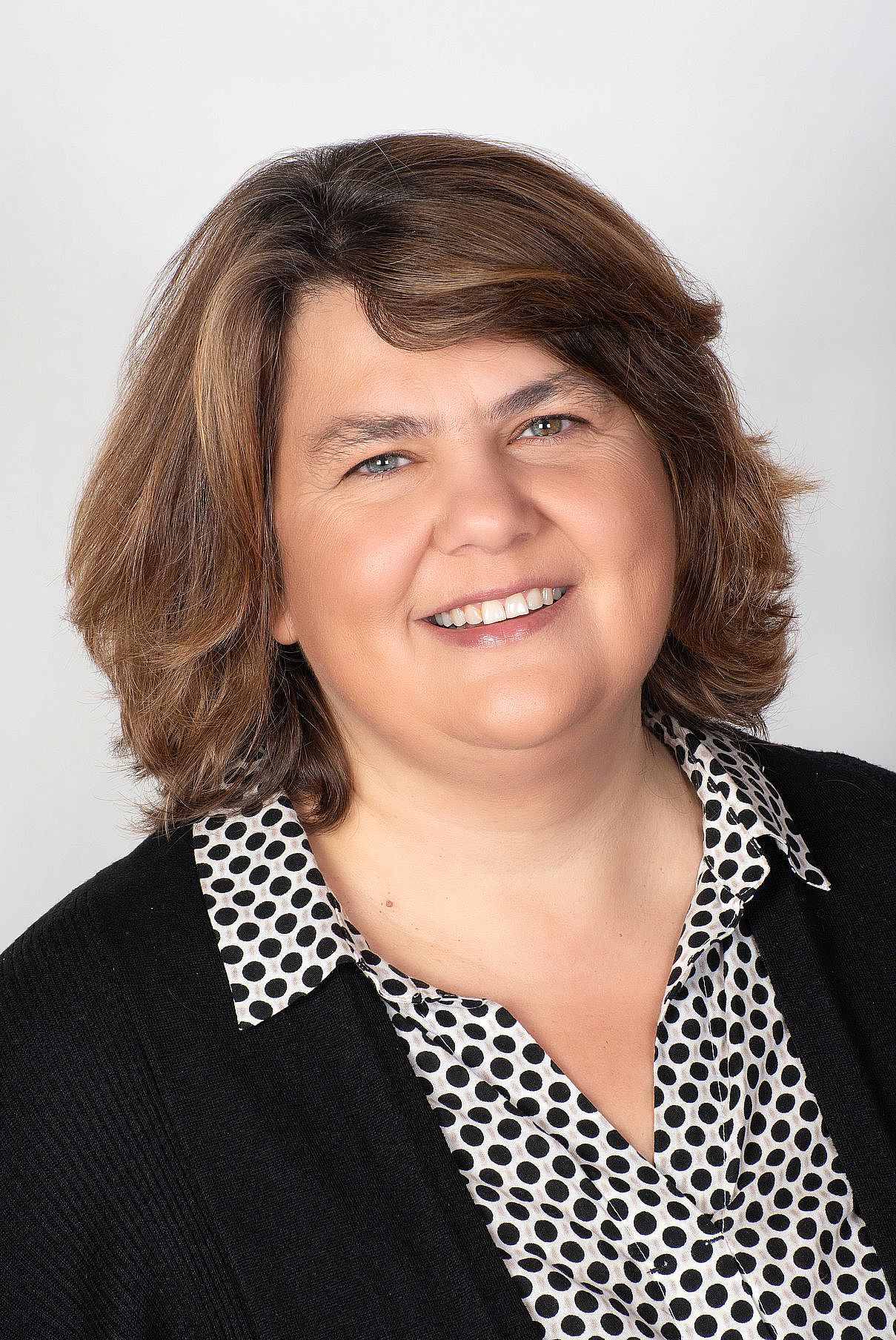Degree
Master of Science (M.Sc.)
Study start
Winter semester: starting October, 1st
Language
English
Credit Points
120 ETCS
Duration
4 Semester

... better understanding the origin and development of diseases, optimizing diagnostics and therapeutics.
Molecular and Translational Neuroscience (MTN) is a research-oriented Master's programme designed to provide students with advanced training in both basic research as well as clinically and therapeutically oriented neuroscience. One of the objectives of Molecular and Translational Neuroscience is to improve the diagnosis and treatment of neurological and psychiatric disorders such as multiple sclerosis, stroke, depression, schizophrenia, traumatic brain injury (TBI), Amyotrophic Lateral Sclerosis (ALS), and age-related diseases such as dementia and Parkinson's disease. These conditions can significantly impact patients' quality of life and, in severe cases, may lead to complete loss of independence.
Current therapies often lack sufficient efficacy due to limited understanding of the underlying pathomechanisms. Therefore, molecular and translational neuroscience focuses on the investigation of physiological and pathophysiological mechanisms involved in the adaptation and homeostasis of the nervous system and serves as a bridge, linking basic cellular and pharmacological studies, molecular neurobiology, behavioral physiology, and diagnostics as well as pharmacological applications. The knowledge gained can then be translated into targeted approaches for innovative therapies and preventive strategies.
Our English-taught MTN programme provides specific theoretical, methodological and practical knowledge of cellular and molecular processes in neural cells and in the nervous system that lead to disease, as well as the application of this knowledge to potential new diagnostic and therapeutic procedures and clinical applications. Furthermore, the close interaction with our industrial partner Boehringer Ingelheim provides close insights into the work of a pharmaceutical company.
Degree
Master of Science (M.Sc.)
Study start
Winter semester: starting October, 1st
Language
English
Credit Points
120 ETCS
Duration
4 Semester

Involvement of basic research and clinics, the non-university research institution German Center for Neurodegenerative Diseases (DZNE), various faculties of Ulm University, industry (Boehringer Ingelheim), the clinical trials center of the Neurology department and attorneys in European patent law.
Bringing together students from different disciplines of their undergraduate studies and from different countries and cultures around the world promotes interdisciplinary, open-minded thinking and research among Master's students.
We cooperate with our pharmaceutical industry partner Boehringer Ingelheim in Biberach: research experts from the department of Central Nervous System (CNS) therapy area give lectures on how the knowledge gained from basic molecular research at the university can be translated into new treatment options and drug development and how drug development takes place.
At the Clinical Trials Center of the Department of Neurology, students can spend time with a study team to learn how a clinical trial is conducted in patients. Through hands-on training, they learn the essential steps in planning and organizing clinical trials through a start-up simulation.
A wide range of elective courses from various disciplines allows students to choose their individual focus: whether it is stem cell biology or ageing research, stress physiology or brain imaging techniques, European patent law or statistics in medicine, this is just a small selection of our elective courses. Students can pick and choose - or simply learn everything.

Internships can be completed in laboratories of Ulm University, Ulm University Hospital, at other German universities or research institutions or at foreign universities.
Training with a focus on, among others: Traumatic brain injury (TBI), Amyotrophic Lateral Sclerosis (ALS), Stroke, Parkinson’s Disease, Huntington’s Disease, Schizophrenia, Multiple Sclerosis. For example, an introductory methods practical course takes place in the modern Teaching Hospital “To Train U” at Ulm University.

The small group size (around 20 students per winter semester) means optimal supervision by the lecturers in lectures, seminars and practical courses, which leads students to the best possible learning success.
We are proud of the fact that we know every student personally. We offer excellent support throughout your studies with individual counselling options and personal contact with lecturers and programme coordinators.
In addition, there is a buddy programme run by students for students, which enables students to settle in quickly.
Students benefit from the opportunity to have direct contact with scientists from Ulm University and lecturers from Ulm University Hospital as well as experts from Boehringer Ingelheim's pharmaceutical research department.
The exchange with MTN students from higher semesters, with alumni or with students from the neighbouring Molecular Medicine course is a matter of course.
But we also maintain contact with our graduates after they have completed their studies. Students can exchange ideas with former students or get to know them personally at an alumni meeting and thus make personal and professional contacts for the future.

The program is suitable for graduates of bachelor's degree programs in the life sciences: Biology, Biochemistry, Molecular Medicine, Physiological Chemistry, Neurobiology, Biopsychology, Human Biology, Molecular Life Sciences, or another program with essentially the same content.
Graduates of human medicine (state examination) may also apply.
Graduates of the program are qualified for a variety of attractive jobs in biomedical research institutes:
Intensive contacts to pharmaceutical companies and laboratories are established already during the studies.
Our Master's program is closely linked to the international PhD program in Molecular Medicine. Graduates can do their PhD in the Graduate School of Molecular Medicine at the University of Ulm (IGradU), in research groups at the University of Ulm or at other universities in Germany and abroad.
The program comprises four semesters of standard study time and concludes with the Master of Science degree.
The study plan provides information on the structure of the course. There are compulsory and elective modules. You must achieve a minimum of 120 credit points (ECTS) to graduate. You can acquire 30 credit points in each semester.
At the beginning of the program, introductory basic courses teach the cellular and molecular processes in the nervous system that can lead to disease. The theoretical, methodological and practical basic knowledge is then applied to potential new diagnostic and therapeutic procedures and clinical applications. The focus is on understanding and researching molecular mechanisms and neurological and psychiatric diseases with the aim of improving diagnostics and developing drugs and therapeutic procedures against the diseases, in addition to basic research.
The pharmaceutical industry partner Boehringer Ingelheim is closely associated with the program and shows the way from basic research to therapeutics developments.
The syllabus is taught in lectures and seminars, but students also complete at least two 1-week and three 4-week laboratory internships. These, as well as the 6-month master's thesis, can be completed in preclinical, clinical and biological institutes at the University of Ulm, at the University Hospital Ulm, at external institutes and research facilities in Germany and abroad, as well as at Boehringer Ingelheim.
Do you have any questions about the Molecular and Translational Neuroscience program? Contact us, we will be happy to advise you.
As long as your first degree is from the field of "life sciences", you can apply. A selection committee will consider whether you are eligible for the master's program based on the coursework you have completed and the grades you have received, based on your information about your previous study content and your experience with laboratory methods as well as the other documents you have submitted. Thus, not only study programs such as Biology, Biochemistry, Molecular Medicine, Human Medicine can fulfill the prerequisite, but also studies with essentially a similar teaching content.
• Applicants for this program must have received a bachelor's degree in a Life sciences program such as: Biology, Biochemistry, Molecular Medicine, Physiological Chemistry, Neurobiology, Biopsychology, Human Biology, Molecular Life Sciences, or another degree program with essentially the same content. Graduates of human medicine (state examination) may also apply. The degree must have been obtained at a university or university of applied science in Germany or at a university abroad which must have been recognized as equivalent with a duration of study of at least 3 years.
• If you have not yet completed the degree but expect to complete it before the MTN study program starts in October, it is also possible to apply with a preliminary transcript of records. You can get an admission based on the transcript of records, and hand in the final certificate until the deadline of enrollment.
• Your degree must show an overall grade of 2.7 or better. If no degree has yet been awarded all examination results must show an average grade of 2.7 or better and must be documented in a current transcript of records.
• Knowledge and skills demonstrated by the form “subject-specific additional information on study content” and the form “subject-specific additional information on knowledge in Laboratory Methods”:
With regard to the study content, achievements must have been made in at least 7 of the named subject areas, whereby the subjects of category A are weighted twice.
A minimum of 5 of the laboratory methods must have been at least "performed under supervision" (or better).
• Furthermore good knowledge of English language at level C1 of the Common European Framework of Reference for Languages (CEFR) is required.
• In addition to the requirements for the online application the applicant must have passed a selection interview with an overall grade of 2 or better for admission.
The application process takes place in two stages:
1. Online application
2. Selection interview
First, the formal and content requirements based on your online application will be checked. In a second step applicants who meet the formal and content requirements will be invited to a selection interview by e-mail.
• Bachelor certificate and diploma (= Bachelor’s degree and diploma, if applicable)
• Transcript of records with the final grade of the bachelor’s degree.
• If you have not yet completed the degree but expect to complete it before the program starts, it is also possible to apply with a preliminary transcript of records. Make sure the Transcript of Records (ToR) shows all program achievements and examination results obtained in the undergraduate studies with the average grade of all examinations. You can get a conditional admission based on this ToR and hand in the final certificate later on.
• The total workload of your bachelor studies or the received workload up to the end of the application period must be listed.
• In the case of foreign certificates, a grading scale must be uploaded indicating the best grade to be awarded and the minimum passing grade to obtain the university degree. In some cases, where the grading scale is already on the Transcript of Records, the ToR must be uploaded again for the online application.
• Proof of English language proficiency at level C1.
A test is not needed by applicants who can proof that their mother tongue is English or if their undergraduate studies have been taught exclusively in English. All others must take a language test. The tests that are accepted for Level C1 (CEFR) can be found in the language statutes of Ulm University (see FAQ).
• A letter of recommendation: A letter of study-related reference signed by the hand of an employee of a public or private institution (e.g. University Professor/PhD/post-doc, no Ph.D.-student), on letterhead, indicating the signer's contact details and the position in which the signer was acting.
• A letter of motivation - maximum 2 pages long - in which you describe your motivation and your expectations for studying in the Master’s program Molecular and Translational Neuroscience here in Ulm.
• Curriculum vitae (CV)
• The electronically filled document “Subject-specific additional information on STUDY CONTENT”. You can download the document on the website of the admissions department of the University of Ulm before application period starts and must upload it as a pdf document during the online application process via the campus portal.
• The electronically filled document “Subject-specific additional information on knowledge in LABORATORY METHODS”. You can download the document on the website of the admissions department of the University of Ulm before the application period starts and must upload it as a pdf document during the online application process via the campus portal.
• Certified translations of all documents that were not issued in German or English.
For the Master MTN program a language proficiency at level C1 of the CEFR is required.
These test scores are accepted:
TOEFL iBT: 95 points or more
IELTS: 7.0 points or more
TOEIC: 490 (listening), 455 (reading), 180 (speaking) and 180 (writing) points or more
Cambridge exam: Certificate in C 1 Advanced English or Certificate in C 2 Proficiency in English
UNIcert®: level III or level IV
PTE Academic: 76 or higher
Further information can be found under §3 (1) and §3 (3) of the Statutes on the required language proficiency for studies at Ulm University.
No, in this case we need proof that your undergraduate studies (Bachelor study program) have been taught exclusively in English.
A single English language course at C1 level (during your high-school or undergraduate studies) is not sufficient.
The application process takes place in two stages. First, the formal and content requirements will be checked on the basis of the documents submitted with the online application. Applicants who meet these criteria will be invited to a selection interview by e-mail. Therefore, please check your e-mails regularly starting June 1.
The interviews will take place in presence at the University of Ulm or online via Zoom at the end of June / beginning of July.
Applicants will be informed during the summer months (June - August). The exact timing varies each year. If you would like to know the exact date, please contact the program coordinator by email.
There are administrative fees of around €170 per semester, but this amount may vary by a few euros each semester. Non-EU citizens must also pay international tuition fees of €1,500 per semester. More information can be found at this link:
Tuition fees
Unfortunately, the Master - Molecular and Translational Neuroscience program does not have the possibility to offer scholarships. However, funding opportunities for national and international students can be found on the websites of the German Academic Exchange Service (DAAD) and comparable institutions.


Zentrale Studienberatung
Anne-Marie Unsöld
Tel: +49731-5024444
E-Mail: anne-marie.unsoeld(at)uni-ulm.de
Abt. II-1 Zulassung
Tel: +49731-5024444
E-Mail: zulassung(at)uni-ulm.de